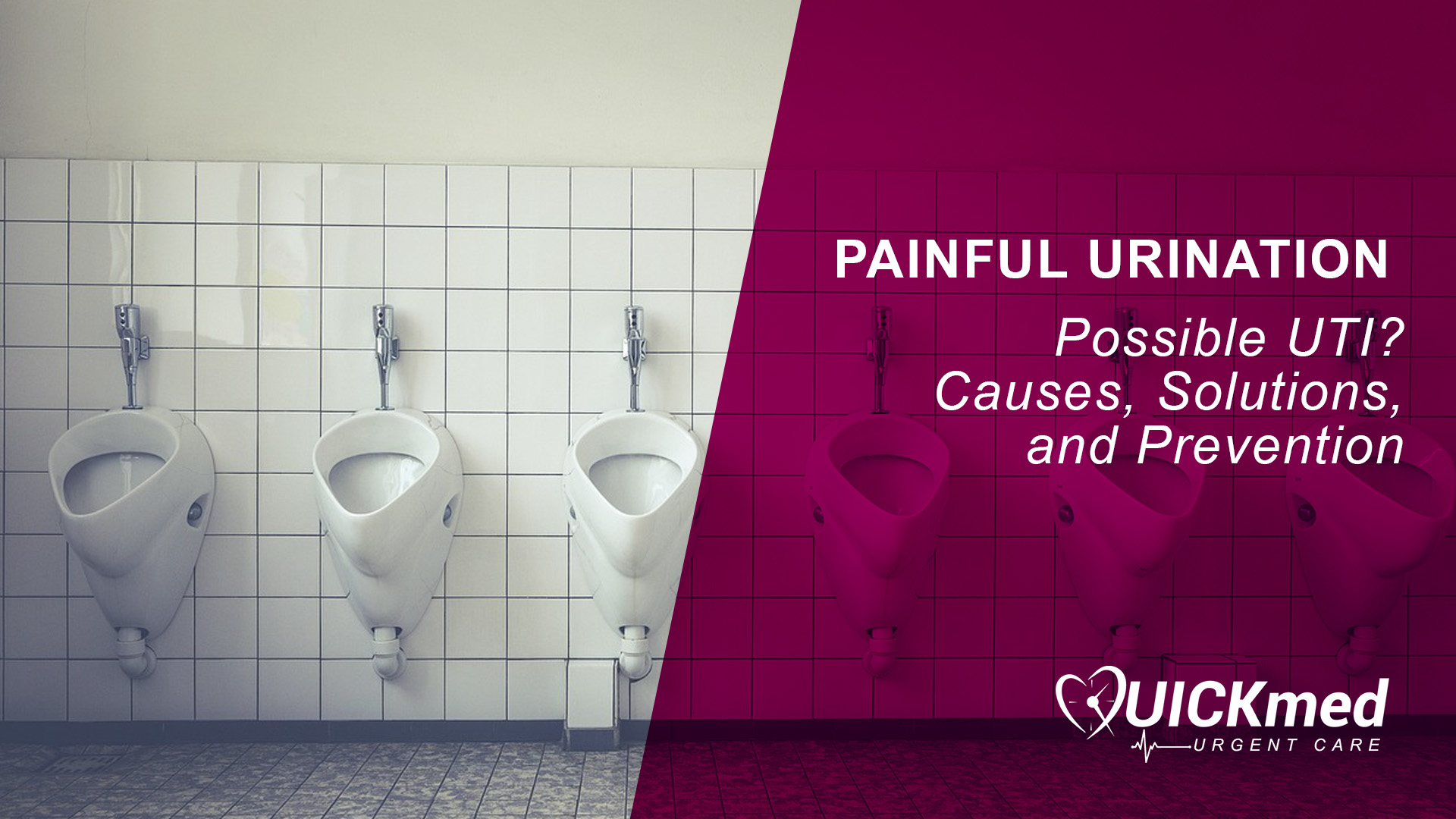Painful Urination: Causes, Solutions, and Prevention

Painful urination is a common symptom that can indicate an infection, irritation, or another underlying health condition. While it can be uncomfortable and concerning, understanding its causes and taking the right steps can help you find relief and protect your urinary health.
What Is Painful Urination?
Painful urination—also known as dysuria—refers to a burning, stinging, or discomforting sensation when urinating. This symptom is often caused by infections, inflammation, or irritation in the urinary tract. It can affect anyone but is more common in women due to the shorter length of the urethra, which makes infections easier to develop.
What Does That Mean for You?
If you’re experiencing painful urination, it could be a sign of one of the following conditions:
- Urinary Tract Infection (UTI): Bacterial infections in the bladder or urethra are a leading cause of painful urination, often accompanied by frequent urges to pee and cloudy urine.
- Sexually Transmitted Infections (STIs): Chlamydia, gonorrhea, and trichomoniasis can cause burning or discomfort when urinating.
- Yeast Infections: An overgrowth of yeast in the vaginal area can lead to irritation and burning, especially after urination.
- Bacterial Vaginosis (BV): A disruption in vaginal bacteria balance can cause irritation, discharge, and discomfort.
- Kidney or Bladder Stones: Small mineral deposits can block the urinary tract and lead to pain while urinating.
- Irritants: Harsh soaps, douches, or certain hygiene products can cause inflammation and discomfort.
If painful urination lasts more than a day or two, worsens, or is accompanied by fever, lower back pain, or unusual discharge, you should seek medical attention.
Solutions: What to Do If You Have Painful Urination
If you’re experiencing painful urination, taking action quickly can help prevent complications. Here’s what to do:
- Get tested: QUICKmed offers convenient at-home STI and UTI testing kits that are simple, fast, and private.
- Stay hydrated: Drinking plenty of water can help flush out bacteria and irritants.
- Avoid irritants: Switch to unscented soaps and avoid douching to prevent further irritation.
- Use proper medication: If an infection is the cause, antibiotics or antifungal medications may be necessary. QUICKmed’s telehealth services allow you to get a prescription without leaving home.
- Take over-the-counter relief: Products like urinary pain relievers can provide temporary comfort while you seek treatment.

Preventative Measures: How to Protect Your Urinary Health
Preventing painful urination starts with good hygiene and smart health choices. Here’s how you can reduce your risk:
- Practice safe sex: Use condoms to prevent STIs/STDs that can lead to painful urination.
- Urinate after sex: This helps flush out bacteria before they can cause an infection.
- Wipe front to back: This simple habit reduces the spread of bacteria from the anus to the urethra.
- Stay hydrated: Drinking enough water keeps your urinary system functioning properly.
- Avoid harsh products: Choose gentle, unscented soaps and avoid vaginal douching.
- Get regular screenings: Routine STD and UTI testing can help catch infections early before they cause discomfort.
Find Relief with QUICKmed
If you’re dealing with painful urination, QUICKmed is here to help. With our easy-to-use at-home STI and UTI testing kits, telehealth consultations, and prescription services, you can get the care you need—quickly and discreetly.
Take charge of your health today—schedule a consultation or order a test kit from QUICKmed.

